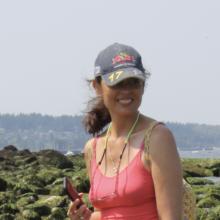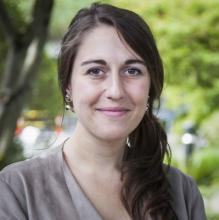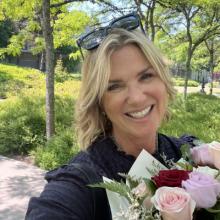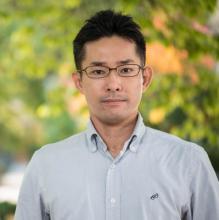Kristine has a passion for improving quality of life in residential care, particularly for those struggling with loneliness and depression. She is collaborating with the Schlegel-UW Research Institute for Aging and 12 residential homes in Ontario to study a novel approach to peer support she developed, namely the Java Mentorship Program. With this program, Kristine hopes to inspire implementation in other homes throughout Canada and abroad.
What does being a Public Scholar mean to you?
I see a public scholar as someone who is focused on collaborating with others in deepening our understanding of a current condition but is also someone who is passionate about utilizing new knowledge in a way that contributes to the common good. Public scholars refuse to leave research on the library shelf and are committed to taking knowledge gained by translating it to the public and manifesting research into real life. They are relentless in seeking out ways to build partnerships with other sectors to achieve this.
In what ways do you think the PhD experience can be re-imagined with the Public Scholars Initiative?
I think shining a light on the concept of public scholarship through this initiative is a vital and important step towards re-envisioning the role of a PhD student. The desire that I have as a PhD student to make a more immediate and direct difference with the pressing social issues around loneliness and depression that exist within residential care, is greatly enhanced through this support. It has validated and given a name to the combination of scholarship and collaboration I have been engaged in. I believe the acknowledgement of the many diverse non-traditional approaches to a PhD through the initiative will strengthen my work and the work of my fellow students through networking, education and simply making what we are doing visible.
How do you envision connecting your PhD work with broader career possibilities?
My vision is to continue the research I am doing on peer support and at the same time strengthen the mutually beneficial partnerships I am developing between research institutes, public and private sectors to help overcome the critical problems of loneliness and depression in residential care. This will be building on the work I began when doing my master’s research. I created a peer support program designed for those living in residential care—the first standardized support program of its kind called the Java Music Club. In keeping with the national knowledge translation efforts to incorporate evidence-based research into the practices of health professionals, I started a company in September 2011 in order to disseminate the results of my thesis into policy, programs and practice. I developed training modules and videos for staff and presented the program at numerous conferences as well as to practitioners and institutions in Canada and the United States. Since September of 2011, the program has been implemented in over 500 residential care homes, assisted living, retirement, adult day centers, and hospitals and I am working closely with a number of larger residential organizations. I have also been supporting two pilot randomized control studies evaluating this program at the University of Alaska. I developed a second program for those with advanced dementia called Java Memory Care and along with Dr. Linda Hermer at the LeadingAge Center for Applied Research in New York and Dr. Michael Skrajner of the Hearthstone Institute in Ohio, will be evaluating the efficacy of this new program. A third peer support program I developed called the Java Mentorship Program targets socially isolated residents. This program is the subject of my PhD and is under evaluation now in Ontario in collaboration with the Schlegel-UW Research Institute for Aging.
How does your research engage with the larger community and social partners?
With the positive findings emerging from my research, I will be active in translating the knowledge gained to inform senior living organizational and educational programs. This will occur through: (a) Active collaboration with Schlegel-UW Research Institute for Aging Education in related work-force development and inter-professional practice; (b) Thought-leadership and educational webinars in partnership with organizations such as the Alzheimer’s Society of Canada, the Ontario Association of Residents’ Councils (OARC), and provincial ministries of health with whom I already have a working relationship; and (c) Dissemination of findings to the wider public through media reports and to the research and professional community through journal publications and presentations at conferences. In addition I am continuing to develop an information center which hosts a combination of a website with information about the programs (including study results), videos to engage the public and private sectors, a quarterly newsletter and information on education and webinars.
Why did you decide to pursue a graduate degree?
I worked for many years as an accredited music therapist and have become familiar with the complex challenges within residential care. Despite the many advances in policy and program to improve psychosocial wellbeing of those living in these settings, loneliness and depression still affects over half of this population. This is a significant social issue that inspired me to pursue a graduate degree.
Why did you choose to come to British Columbia and study at UBC?
UBC is a leader in the rehabilitation field and the program includes regular research seminars as well as interdisciplinary learning opportunities. An interdisciplinary approach is necessary in attempting to address the multifaceted issues within residential care long-term care. The department of Rehabilitation Sciences provides an ideal training environment to help me achieve my goals to increase understanding of the science of social rehabilitation particularly with a focus on mental and social well-being among older adults.
I see a public scholar as someone who is focused on collaborating with others in deepening our understanding of a current condition but is also someone who is passionate about utilizing new knowledge in a way that contributes to the common good.




